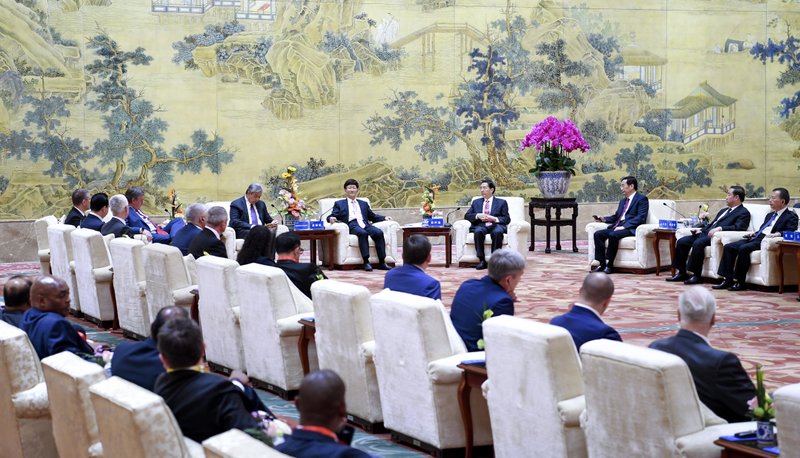PARIS -- The international police agency Interpol voted Wednesday to include the "State of Palestine" as a member, in a boost to Palestinian efforts for international recognition and influence despite long-stalled negotiations with Israel for full statehood.
The decision drew an angry Israeli reaction and threat of retaliation. It also raised concerns that the Palestinians might use their elevated status to seek the arrests of Israelis, though Palestinian officials said there were no immediate plans to do so.
Interpol announced the inclusion of Palestine as well as the Solomon Islands on Twitter and its website Wednesday after a vote by its general assembly in Beijing.
The inclusions mean Interpol will have 192 members. Interpol didn't immediately announce how many members supported Palestinian membership.
Over Israeli objections, the U.N. General Assembly recognized Palestine as a nonmember observer state in 2012. Since then, the Palestinians have sought to join various United Nations and international bodies to buttress their dream of gaining independence. Israel has condemned the campaign as an attempt to bypass negotiations.
Palestinian Foreign Minister Riad Malki hailed Wednesday's vote as a "victory for law enforcement" and a "voice of confidence in the capacity of law enforcement in Palestine." He promised to uphold Palestinian commitments to fighting crime and strengthening the rule of law.
In Jerusalem, Israeli Prime Minister Benjamin Netanyahu said the decision "seriously harms the chances to achieve peace."
In a meeting with Jason Greenblatt, the United States'' envoy to the Mideast, Netanyahu also said the "diplomatic warfare" carried out by the Palestinians will not go unanswered.
He did not elaborate. But earlier, Cabinet Minister Zeev Elkin, a close Netanyahu ally, said Israel should cancel gestures granted to the Palestinians, such as permits to work and enter Israel and special travel permits for Palestinian leaders.
Former Israeli Prime Minister Ehud Barak called it "another failure" for Netanyahu.
In Washington, U.S. Sen. Ben Cardin of Maryland, the top-ranking Democrat on the Senate Foreign Relations Committee, told reporters that the Palestinian membership could harm peace efforts.
He said he was concerned that the Palestinians would now issue Interpol "red notices," which the U.S. Justice Department describes as the closest instrument to an international arrest warrant in use today.
"The international community has a great deal at stake in pursuing the peace process between the Palestinians and the Israelis," Cardin said. "There's only one way forward: two states living side by side in peace; a Palestinian state and a Jewish state. To try to use international organizations to advance the cause only sets back that opportunity."
Cardin said any red notices issued by the Palestinians "will not be recognized in many countries, including the United States."
In a statement, Interpol said red notices are not international arrest warrants but rather act as an alert to member countries. The agency said they are issued based on valid national arrest warrants. Each member country decides how to respond to such a notice, and Interpol can't compel its members to arrest a person who is the subject of a red notice.
Omar Awadallah, the head of the U.N. organizations department in the Palestinian Foreign Ministry, said the Palestinians "now have the right to sue anyone" and could theoretically use their Interpol status to pursue legal steps against Israelis suspected of crimes in Palestinian territory.
"But this is a political issue and needs a political decision," he said.
The Palestinians already have been providing evidence in a preliminary war crimes investigation against Israel at the International Criminal Court, another international body they have joined.
The Palestinian prime minister applied for Interpol membership in 2015. He submitted a formal letter this July promising not to use the organization "for any political, military, racial or religious interventions or activities" and to cooperate with Interpol, according to minutes of the Interpol meeting.
Information for this article was contributed by Ilan Ben Zion, Mohammed Daraghmeh and Richard Lardner of The Associated Press.
A Section on 09/28/2017
